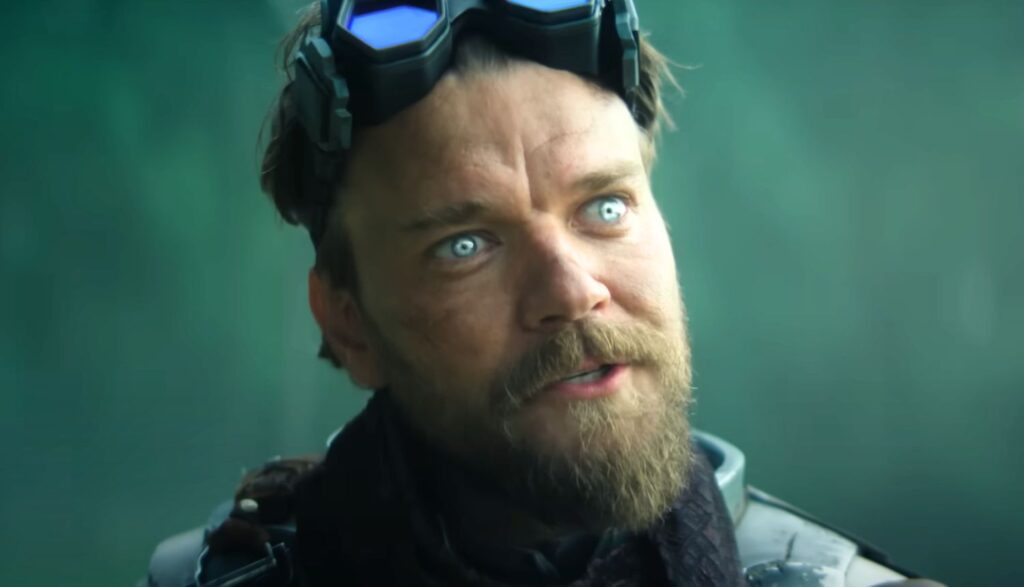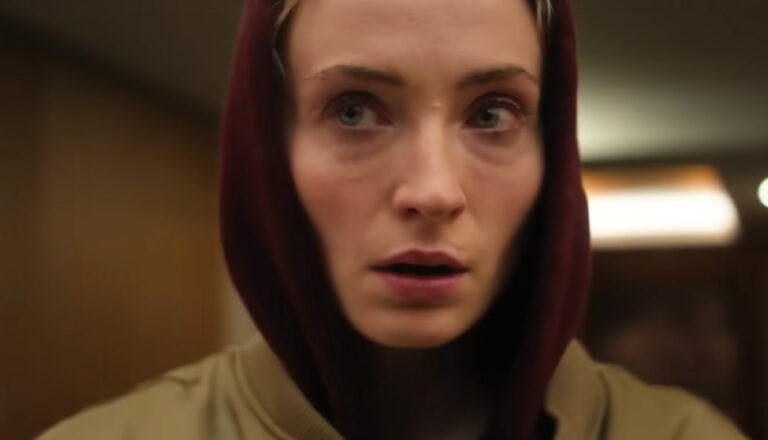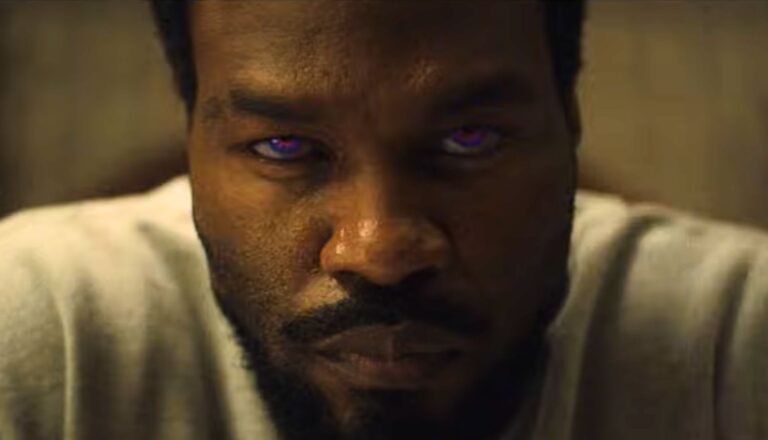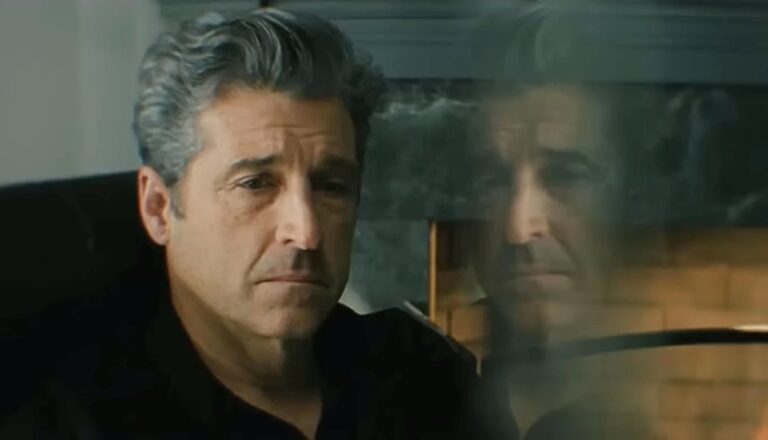
Shrinking
Apple TV+ seems to have a knack for creating deeply heartfelt, wildly problematic comedies. Shrinking is one of them.

For the past 300 years, the Galactic Imperium has been dying. Which is a big surprise to its emperor.
Give the thing a quick glance, and the Imperium looked like it was doing pretty well at the time it began to decline, ticking along just as it had for the last 12,000 years. Oh, sure, there may have been some problems around the edges. And, yes, a terrorist attack had just killed 100 million people in the heart of the capital.
But as far as Emperor Cleon was concerned—well, one of three clones of the original Emperor Cleon who lived in the palace those days, collectively known as “Empire”—those were just blips in an age-old line of success and domination. In his opinion, the Imperium had another 12,000 years in it yet. With another Cleon clone to lead it, of course.
But Hari Seldon disagreed. And he and his followers were exiled to the edge of the galaxy because of it.
Hari Seldon was an unwilling revolutionary. He was a mathematician, actually, one who stumbled upon a new science called psychohistory. Math, Hari learned, can predict the future when looked at the right way. It’s woefully inaccurate at predicting what any one person might do, of course. But when the sample size runs to the trillions, it’s pretty exact. And as much as Cleon might have wished otherwise, the numbers didn’t lie, and the Imperium began to fall, just as Hari predicted.
But within that math, Hari found a bit of hope. While nothing can stop the Imperium’s fall, Hari discovered a way to soften the tumble. So instead of dealing with a 30,000-year age of darkness following the Imperium’s doom, he worked to shrink that period of galactic barbarity to a mere millennium.
Hari, along with his fellow exiles, convinced Empire that they needed to compile a lexicon of the galaxy’s most important bits of knowledge so that civilization wouldn’t have to reboot from scratch.
Empire—or, rather, the hearty-and-hale version of Cleon called Brother Day (Brother Dusk and Brother Dawn are an old man and a young boy, respectively)—wanted to execute Hari and his young apprentice, Gaal, for undermining confidence in the Imperium. But instead, he decided to ship them and 1,700 of Hari’s followers off to pursue their little project on a faraway frozen rock aptly named Terminus, just in case Hari was right.
Well, Hari was right. But he also lied a little about how the Imperium’s end would come about, not to mention his plans for Terminus.
Rather than create a compendium of knowledge, Hari established a rival civilization to the Imperium called the Foundation. The Foundation, equipped with the Radiant—an object created by Hari to house all of his psychohistorical calculations—would indeed prevent the collapse of all civilization. But only by destroying the Imperium itself.
Unfortunately, Gaal wasn’t privy to Hari’s plans. So she sort of inadvertently thwarts them. That first hiccup in Hari’s calculations might have been navigable, but Hari also didn’t know about the Mule, a psychically-capable mutant who’s plotting to overthrow both the Imperium and Foundation.
The Mule, it turns out, is such an anomaly that now none of Hari’s predictions are accurate. And that leaves Gaal—who has been assisting Foundation for the past 300 years since Hari’s death by putting herself into prolonged cryosleep—with quite the challenge. She knows that the way ahead will be difficult indeed—more difficult than Empire or Hari ever imagined. But success is far from a mathematical certainty. It is, as Hari himself admitted once, closer to a prayer.
And Gaal doesn’t pray to the same god she used to.
That is where we begin our dissection of Foundation, Apple TV+’s ambitious take on Isaac Asimov’s seminal science fiction series: religion.
Faith—faith in gods, faith in the government, faith in science—is an important theme in both the original books and the series. Indeed, Hari’s work takes the shape of an organized religion in the books, and we can already see how both math and science can be confused for religion already. Math divines the future like an old Greek oracle, but far more exactly. Gaal must sometimes remind people that Hari is no “god.” She herself seems to pray at the altar of arithmetic, reciting prime numbers almost as if they made up a catechism.
More traditional-looking religions make an appearance here, too, and they’re not particularly positive. Gaal comes from the planet Synnax, which in Asimov’s books is merely described as “provincial.” In Apple TV+’s take, Synnax’s provincial character comes in the guise of a deeply religious society—one so religious that all scientists and mathematicians on the planet were slaughtered.
It’s not the only place where Apple TV+’s Foundation veers from Asimov’s books, of course. Indeed, nearly all the show’s MA-rated issues are galaxies away from the novels.
Sex scenes are surprisingly frequent and intense. Brutal, bloody and even gloopy deaths mar the scenery, too: In the first episode, a man literally explodes. Foul language is also sprinkled through the show, like asteroids floating through space. And all of these elements, it seems, push the show further and further away from Asimov’s original work—a work that, having won a Hugo Award for the “Best All-Time Series,” probably didn’t need a lot of improvement.
It’s not unusual for makers of television and movies to take a beloved property for adaptation without ever understanding why the property was so beloved in the first place—marring its legacy on the way. Apple TV+ seems set to add to that litany of past mistakes—and make a few new ones en route.
(Editor’s Note: Plugged In is rarely able to watch every episode of a given series for review. As such, there’s always a chance that you might see a problem that we didn’t. If you notice content that you feel should be included in our review, send us an email at letters@pluggedin.com, or contact us via Facebook or Instagram, and be sure to let us know the episode number, title and season so that we can check it out.)
It’s been 152 years since the last major crisis predicted by Hari Seldon. Since then, Foundation has grown in size, conquering many of the planets that once belonged to the Imperium. However, the Mule is also on the move, and his actions could lead all of humanity into an even greater age of darkness than Hari originally predicted.
Gaal, we learn, has managed to prolong her life through “steady cycles of cryosleep.” She only awakens when the Foundation needs her help. Hari has also managed to prolong his life by making an artificial copy of his brain and placing it inside a machine called the Vault. Similarly, he only projects his consciousness when the Foundation needs his help.
Empire’s clones—Brother Dawn, Brother Day and Brother Dusk—are preparing for the next Ascension, the ceremony wherein a new clone is “born” and each preceding clone “ascends” to the next stage of life. I.e., the new clone becomes Dawn, Dawn becomes Day, Day becomes Dusk and Dusk submits to death. The current Dusk fears dying, and he watches playbacks of previous Ascensions, wherein some Dusks willingly go to their deaths (a sort of incineration) and some try (and fail) to flee. That said, he says he won’t resist when it’s his turn, since he’s tired of the life he leads.
The Mule’s psychic abilities allow him to place thoughts into the minds of ordinary men. He uses this talent to manipulate the captains of several airships, convincing them to shoot each other down. We don’t see those airmen’s deaths directly onscreen. But about a dozen ships, each easily carrying a hundred or more people, shoot each other out of the sky in an explosive battle.
Immediately following, the Mule forces a battalion of soldiers to kill one another, and the audience isn’t spared any gore. Blood flies as men fire headshots until every last infantryman is dead. Finally, the Mule impresses his will upon their commander, ordering the man to surrender their planet. He demands the man’s signet ring, which would make the transfer of power official, but it’s stuck on the commander’s finger. So, under the influence of the Mule’s mind control, he bites off the appendage and spits it back out to hand over the blood-covered ring. Then, the Mule tells him to shoot himself in the head. Unable to resist the Mule’s power, he reluctantly complies.
Pirates fight some security officers on the surface of a planet that reaches more than 200 degrees in the sunlight. (We see the mummified corpse of a man who was caught in the sun’s deadly rays.) When one pirate is pushed out of the shadows and into the sun, he’s immediately incinerated. The rest, riding speeders, race against the shadows to escape the sun, stabbing and shooting at each other all the while.
We hear a bit about the politics and trade of Foundation and the Imperium. Foundation has managed to claim 800 planets for itself, and Empire accuses Foundation of greedily stripping those planets of their resources. Indeed, protestors from one such planet are held back by armed guards at a meeting of the Galactic Council (a sort of democratic council made up of representatives from every planet the Imperium controls). One protestor throws a clod of dirt at Brother Dawn as he passes by. She’s beaten shock and shocked by the guards, and we later learn Dawn secretly supplied her with the dirt so he could manipulate the Council.
Although we’re told that the Foundation has “shed its religious roots,” a man who meets with Hari clearly reveres him as a sort of god. Hari himself believes that humanity as a whole currently operates under a “worship of trade.” Someone jokes about praying to the “great god of numbers.” We hear a little about the Luminist religion, which speaks of rebirth (though not in the Christian sense).
Brother Day, who is living in a self-imposed isolation, has cloned a number of extinct animals from the past. (We also see that he has no navel, since he himself was cloned, not born.) Demerzel, an AI robot who serves Empire, follows the Luminist beliefs. She tells a Luminist leader about humanity’s complicated past with robots (and why it’s now illegal to create artificial intelligences or robots). She then asks for advice about how to preserve humanity, which is a key part of her programming, since that goal conflicts with other crucial parts of her programming.
A man and woman, both soldiers of a sort, undress in front of each other (objects in the foreground hide the woman’s breasts from view). It isn’t meant to be sexual at first, rather just two comrades in arms, but then the woman leans in to kiss the man. However, he denies her advances, saying his loyalties lie elsewhere. We see a few shirtless men. A closeup shows a great deal of Demerzel’s lifelike cleavage as she opens a panel on her chest to retrieve a hidden object. There’s a double entendre. Brother Day is living with a courtesan who wears a revealing lace dress. They kiss. It’s evident that courtesans are common, and many have their memories wiped after interactions with Empire to preserve state secrets.
Day’s courtesan is also his drug dealer, and we see him smoke something that she gives him. Characters drink alcohol.
Foundation’s current mayor loves power, saying that he is Foundation. A man defies this leader’s orders to pursue a mission that he believes will save their planet, stealing a ship in the process. We hear the Mule kidnapped a man’s daughter for leverage. Someone purposely insults some politicians by not inviting them to a major event. We’re told Brother Day loves to gamble.
We see a bunch of other sci-fi technology, including “jump gates” that allow ships to travel across the galaxy instantaneously.
There are five uses of the f-word and three of the s-word, along with a handful of other profanities, including “b–ch,” “d–n” and “h—.” Someone calls another “son of a whore.”
Hari, Gaal, Raych and 1,700 other folks are on their way to Terminus—a journey that’ll take four years to complete. But the trip has its stresses. Constant drills—designed to help the colonists survive on the hostile planet—indicate that a great many of them will not survive. Gaal serves as Hari’s right hand, and the responsibilities can be daunting. And for whatever reason, it seems as though Hari’s relationship with Raych, his adopted son (and Gaal’s secret lover) is increasingly strained. Back on Trantor, meanwhile, Brother Day looks for someone to blame for Episode 1’s terrible terrorist attack—and he finds convenient marks in a pair of visiting dignitaries.
Gaal and Raych have sex twice on screen (once in a swimming pool). We don’t see any critical body parts, but we do see plenty of skin, and the movements leave no doubt as to what’s going on. We know the two have coupled plenty in the past—in part, apparently, to sow seeds for the future on Terminus. The fertilized eggs of Gaal and others are removed and stored (we see Gaal, in her underwear, undergoing the procedure), with the idea that they’ll be later utilized to populate the planet. The doctor tells Gaal that one woman refuses to undergo the procedure, though: When Gaal talks to her, the would-be mother fears that if she doesn’t have the baby now, she might never have a chance later (given the perils waiting for them on the planet). But later, at dinner, the would-be mother asks for someone to pass her the wine, suggesting that she went through with the procedure after all. A woman (or woman-like figure) lies on a table, her figure suggesting various bits of anatomy.
Several people are hung. (We see at least one or two jerk on the rope as they die.) Someone is stabbed to death, and someone else is ejected into space with the bloody murder weapon. Several people are gunned down (often accompanied by splashes of blood). An android suffers a wound to her shoulder: We see the wound and watch as she fixes it—which includes cutting away the skin and removing shrapnel from the wound. We hear that dead bodies orbiting Trantor are entering the atmosphere and bursting into flame as their orbits decay. Someone talks about tasting the ash of dead people on his tongue all the time now. Drills evoke plenty of dangers, including poisonous gas and terrifying creatures.
Characters say the s-word twice and “h—” once.
While the show begins on icy Terminus, most of the story takes place 35 years earlier. Gaal travels to Trantor, the capital planet of the Galactic Empire, after winning a contest and a chance to work with famed mathematician Hari Seldon. But shortly after she meets him and his adopted son, Raych, Gaal learns that both she and Hari will likely be arrested tomorrow. And indeed they are. Gaal, as the only other person in the galaxy qualified to even understand Hari’s work, is asked to discredit Hari’s theory that the Empire will implode. If she doesn’t, she will likely die along with him.
A bunch of older kids dare each other to climb a hill surmounted by a floating artifact (and protected by a powerful field of some kind). One boy agrees to go after a girl in the group promises she’ll let him touch or ogle her breasts (using an obscene term for them). Another boy tries to climb the hill but faints dead away and has to be rescued.
One man is executed by being blown to bits somehow. What’s left looks like melted Jell-O. A suicide attack destroys an important conduit to Trantor—the Sky Bridge—which kills (we’re told) 100 million people. (We see lots of panicking people before they die, but few actual fatalities. We also see the suicide bombers blow themselves up.) Gaal and Hari are both threatened with execution.
We see Gaal on her home planet of Synnax, having her “prayer stones” removed from her cheeks. (Blood seeps from one of the wounds.) Those stones, her religion states, keep her in communion with her god; once they’re removed, she’s essentially separated from the almighty. She seems to feel the weight of her decision but declines the opportunity to pray one last time before they’re taken out. She later visits a church and a priest from her faith, who emphasizes that she’s unseen by god (whom he calls “the Sleeper”). But the priest offers her help anyway.
Characters say the s-word three times, along with “d–n” and “p-ss.”

Paul Asay has been part of the Plugged In staff since 2007, watching and reviewing roughly 15 quintillion movies and television shows. He’s written for a number of other publications, too, including Time, The Washington Post and Christianity Today. The author of several books, Paul loves to find spirituality in unexpected places, including popular entertainment, and he loves all things superhero. His vices include James Bond films, Mountain Dew and terrible B-grade movies. He’s married, has two children and a neurotic dog, runs marathons on occasion and hopes to someday own his own tuxedo. Feel free to follow him on Twitter @AsayPaul.

Emily studied film and writing when she was in college. And when she isn’t being way too competitive while playing board games, she enjoys food, sleep, and geeking out with her husband indulging in their “nerdoms,” which is the collective fan cultures of everything they love, such as Star Wars, Star Trek, Stargate and Lord of the Rings.

Apple TV+ seems to have a knack for creating deeply heartfelt, wildly problematic comedies. Shrinking is one of them.

‘Steal,’ an intense, nail-biting thriller, will certainly keep you engaged. But that means facing some bloody, frightening situations along the way.

For a superhero show, ‘Wonder Man’ is surprisingly light on violence, but a bit heavy on swearing, sexual allusions and meta-Hollywood references.

The content issues in ‘Memory of a Killer’ aren’t forgettable, but they’re tamer than most other shows in the “double life” genre.